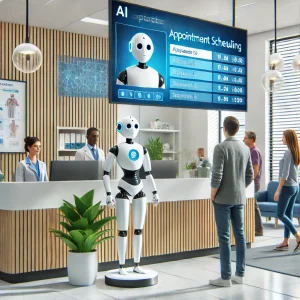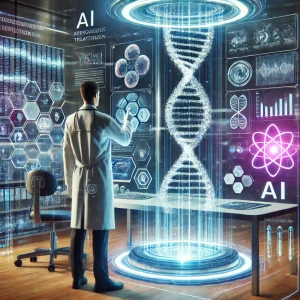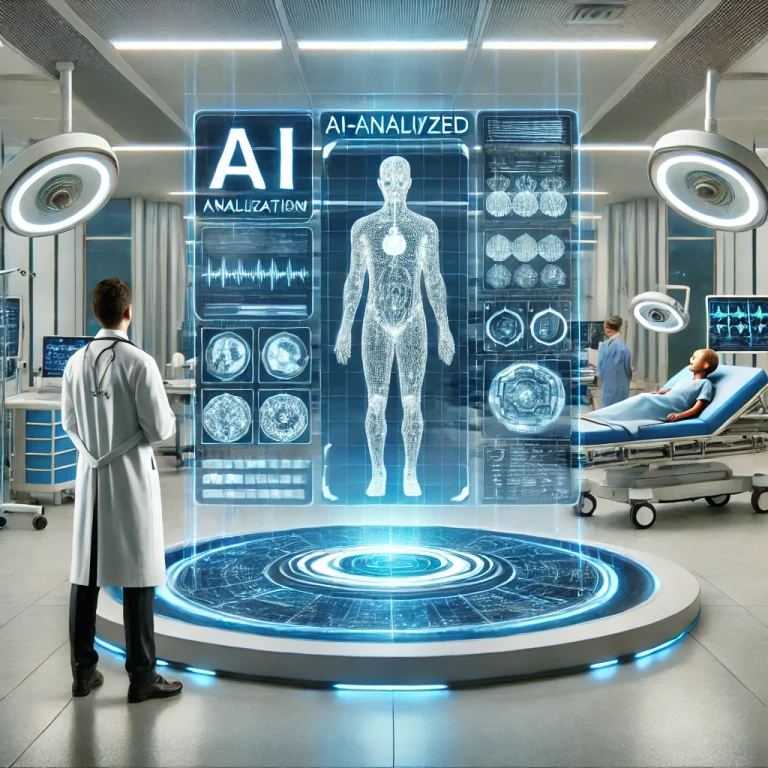Artificial intelligence (AI) is no longer just a buzzword—it’s transforming healthcare in ways we could only have imagined a decade ago. From speeding up diagnoses to personalizing treatment plans, AI is paving the way for a healthier, more efficient future. In this article, we explore how AI is transforming healthcare, the benefits it brings, and what it means for patients and providers.
1. Faster, more accurate diagnoses
One of the most significant advances in AI applications in healthcare is the ability to quickly and accurately analyze large amounts of medical data. Traditional diagnostic methods often rely on manual analysis, which can be time-consuming and lead to human error. However, AI-powered tools can process complex data sets—such as medical images, lab results, and patient histories—in seconds.
For example, AI algorithms are now being used to detect diseases like cancer at earlier stages than ever before. By analyzing radiological images, AI can detect subtle patterns that may escape the human eye. This leads to faster diagnoses and better treatment outcomes for patients.
2. Personalized treatment plans
No two patients are the same, and AI helps healthcare professionals tailor treatment to individual needs. By analyzing patient data, including genetic information, lifestyle factors, and medical history, AI can recommend personalized treatment plans that are more effective and less invasive.
For example, AI is being used in oncology to develop personalized cancer therapies. By analyzing a patient’s genetic makeup, AI can predict how they will respond to certain treatments, allowing doctors to choose the most effective options with the fewest side effects.

3. Simplifying administrative tasks.
In addition to patient care, AI is also revolutionizing the administrative side of healthcare. Tasks like scheduling appointments, managing medical records, and processing insurance claims can be time-consuming and expensive. AI-powered systems automate these processes, freeing healthcare professionals to focus on what they do best: caring for patients.
For example, AI-powered chatbots now handle patient queries, schedule appointments, and even provide basic medical advice. This not only improves efficiency but also the patient experience.
4. Challenges and ethical considerations
While the benefits of AI in healthcare are undeniable, some challenges must be addressed. Privacy and security are major concerns, as AI systems rely on large amounts of sensitive patient information. In addition, there is a risk of over-reliance on AI, which could lead to a lack of human oversight in key medical decisions.
Ethical considerations also come into play, such as ensuring that AI algorithms are free of bias and their decisions are transparent and explainable. As AI continues to evolve, policymakers, healthcare providers, and technology companies must work together to address these issues.

5. The Future of AI in Healthcare
The potential of AI in healthcare is limitless. From virtual healthcare assistants to predictive analytics, AI is set to revolutionize every aspect of the industry. As technology continues to advance, we can expect even more innovative solutions that improve patient care, reduce costs, and save lives.
The success of AI in healthcare, however, depends on collaboration between technology developers, healthcare providers, and policymakers. By working together, we can ensure that AI is used responsibly and ethically to create a healthier future for all.
Conclusion
Artificial intelligence is not just a tool, it will fundamentally transform healthcare. From faster diagnoses to personalized treatments, AI is changing the way we approach medicine. While challenges remain, the potential benefits far outweigh the risks. By continuing to embrace AI, we are not only improving healthcare but also shaping a better, healthier future for all.



